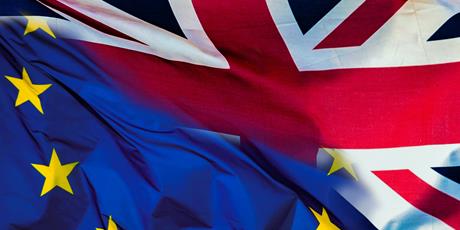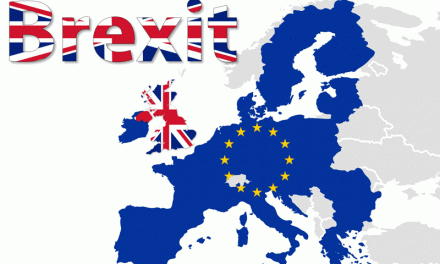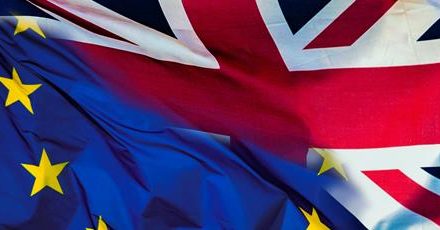Yesterday Yvette Cooper’s EU Withdrawal Bill passed into law and became an Act of Parliament. This unprecedented legislation requires the Prime Minister to seek an extension of the period specified in Article 50. During the debate Sir William Cash made the following interventions:
The Leader of the House of Commons (Andrea Leadsom): I should like to inform the House that in the event that the European Union (Withdrawal) (No. 5) Bill receives Royal Assent today, the House may be expected to approve a motion relating to section 1 of the Bill to seek an extension of the period specified in article 50(3) of the treaty on European Union. I will make further business statements as necessary this week at the earliest opportunity.
(…)
Sir William Cash (Stone) (Con): Will the Leader of the House confirm that the Bill currently going through the House of Lords is the biggest dog’s dinner of any Bill we have seen in recent times? Are the Government opposed to the Bill? Will they do everything to defeat it?
Andrea Leadsom: I entirely agree that it is a huge dog’s dinner. As I mentioned to colleagues when we were looking at the business of the House motion, the European Union (Notification of Withdrawal) Act 2017—the Act to trigger article 50—had two clauses, containing only 58 words. It was debated for five full days in this Chamber. It seems inconceivable that Parliament looked at this Bill for the first time last Tuesday and has had just a few hours of debate across both Houses.
(…)
Mr Speaker: A message has been received from the Lords with Lords amendments relating to the European Union (Withdrawal) (No. 5) Bill. The Clerks at the Table advise me that copies of the Lords amendments are available in the Vote Office, online and at the Bills before Parliament website. Also online and in the Vote Office are motions and amendments relating to the Lords amendments, with a selection paper. I should inform the House that none of the Lords amendments engages financial privilege.
Clause 1
Duties in connection with Article 50 extension
(…)
Sir William Cash: Did the right hon. Lady notice—I watched the proceedings in the House of Lords—the continuous criticisms of this appalling Bill? They said it was a “bad Bill”, “a very bad Bill”—[Interruption.] Also, by the way, it is not going to prevent no deal and furthermore, there is nothing that requires, as a matter of law, the avoidance of no deal.
Yvette Cooper: Some people criticised the Bill, but the vast majority of the Lords supported the Bill, which is why we have it back before us now. Parliament has shown in both the Commons and the Lords that it is capable of responding to the gravity and the urgency of the challenge that our country faces and the very immediate risks to jobs, public services and families across the country if we drift. None of us could have imagined that we would be in this situation in the first place. These are unprecedented circumstances, but they should also serve as no precedent for the future when, as we all hope, normality might be restored.
I particularly thank Lord Robertson and Lord Rooker, who sponsored the Bill in the Lords, the Government and Opposition Front Benchers and Cross Benchers, who engaged in thoughtful discussion about these amendments, and the right hon. Member for West Dorset (Sir Oliver Letwin), who did considerable work to ensure that the amendments would be effective. I said to the Minister, when we were discussing this in Committee, that we were keen to ensure that there was legal clarity for the Prime Minister as she went into the negotiations in the EU Council, and that she would be able to take sensible decisions in the national interest without having to come back to this House in the middle of negotiations—clearly, that would not be in the national interest. I welcome the work that has been done together to ensure that that clarity applies and that the Prime Minister can take those discussions forward.
(…)
Sir William Cash: I completely repudiate what has been said by the right hon. Member for Normanton, Pontefract and Castleford (Yvette Cooper). The reality is that this outrage is the equivalent of tossing a hand grenade into our constitutional arrangements, given the vital importance of the vote that was delivered by the British people in the referendum. It constitutes a deliberate attempt to undermine that result, and any attempt to say otherwise is a total misrepresentation of the facts.
The Bill will not compel the Prime Minister to do anything that she does not want to do anyway, which is to ask for an extension until 30 June, if we assume that the resolution of the House on Tuesday retains that date. The Bill does not compel her to agree to an extension to a different date, if offered by the European Council, and nor if one is offered with conditions. By the way, that could raise some very serious legal questions, which have not yet been followed through to their ultimate conclusion. Hence, if there is a longer extension, it will be by the Prime Minister’s own voluntary act, and not as a result of compulsion by a remain-dominated Parliament, which is what this is. I have said repeatedly during these proceedings that we have a system of parliamentary Government, not government by Parliament. This is a complete reversal of that position; it is a constitutional outrage.
Further, with regard to the European elections, which are dealt with in another amendment on the amendment paper, I would just read out the new clause in my name:
“No extension of the period under Article 50(3) of the Treaty on European Union may be agreed by the Prime Minister if as a result the United Kingdom would be required to prepare for or to hold elections to the European Parliament.”
There are many, many people up and down the country who would totally support that proposition. Furthermore, the reality is that, on Thursday last week, I had a similar amendment on the Order Paper. I was informed that, although it had been selected, No. 10 had given instructions to vote against it. The Government were going to vote against that amendment despite the fact that it was meant to be Government policy. All over the country, there is a firestorm about the fact that we could be involved in European elections. People are leaving their own parties over this because they are so completely infuriated by the fact that the arrangements under consideration here could lead to this absolutely insane idea of our being involved in European elections. The turnout in European elections is derisory. The European Parliament itself is derisory. There is absolutely no reason on earth why we should be involved in these elections, and that is why I have tabled this new clause.
Pete Wishart (Perth and North Perthshire) (SNP): Why does the hon. Gentleman not offer himself as a candidate and make them all the more exciting?
Sir William Cash: I must admit that if I were to, there would be quite a lot of fireworks in the European Parliament—I can assure the hon. Gentleman of that.
I have no doubt whatever that what those involved are doing by creating circumstances in which the European elections could take place is not only to undermine the vote that was taken in June 2016, but, in addition, to humiliate this country by virtue of the fact this is all effectively being created by our subjugation to the European Union and by our Government crawling on their hands and knees to the European Council—this is something imposed upon them. The idea is not only that we should be put in a position of subjugation but, in terms of the letter the Prime Minister wrote on 5 April, which is a begging letter to the European Council, that we are effectively giving ourselves over to the European Union, which is a humiliation of this country. In no circumstances whatever should we have allowed this ever to happen.
Yasmin Qureshi (Bolton South East) (Lab): I thank the hon. Gentleman for giving way, but does he not agree that words such as “humiliation”, “submission”, “begging”, “traitors”, “hang them” and “violence” are not appropriate in these types of debate?
Sir William Cash: They most emphatically are, because, unlike what has been going on in this House, which is a perversion and a distortion of our constitutional arrangements, the very essence of our position is to defend democracy, to defend the vote that was taken by the British people, and to stand up for the repeal of the European Communities Act 1972, which was passed and is the law of the land. That is where we are right now.
Section 1 of the European Union (Withdrawal) Act 2018 says that European Communities Act 1972 will be repealed on exit day. All that this Bill does is to move exit day. And by the way, exit day will move, if it ever does, in lockstep with the repeal of the 1972 Act unless someone is prepared to get up and tell me that they intend to repeal the repeal of the 1972 Act. We are still going to repeal that Act, and I think that that is completely lost on Opposition Members.
There are many other things that I would like to say about this wretched Bill, this abomination. The manner in which it has been done is a constitutional violation. It is not a technical innovation, as some people have tried to pretend; it is a constitutional revolution. Mr Speaker, I remember you referring to a precedent that was set in 1604. As I said the other day, Oliver Cromwell came to this House in the mid-1650s in circumstances in which the House of Commons had turned itself into a rabble. He was so furious with it that he said:
“You have sat too long for any good you have been doing”.
That was an accusation—[Interruption.]
So he will, Mr Speaker.
Cromwell continued:
“Depart, I say…In the name of God, go!”
As far as I am concerned, that applies to many Members of Parliament who have reversed their votes and who have repudiated the vote of the British people and denied our democracy.
Ms Angela Eagle (Wallasey) (Lab): On a point of order, Mr Speaker. Is it really in order for a Member of this House to try to delegitimise other Members of this House, all of whom have our own mandates from our constituencies, simply because he does not agree with what we agree with?
Mr Speaker: It is not procedurally improper. It has offended the sensibilities of a considerable number of colleagues, but my hunch is that the hon. Member for Stone (Sir William Cash) will not suffer any loss of sleep as a consequence of that. The hon. Member for Wallasey (Ms Eagle) has made her point was considerable force, and it is on the record. Had the hon. Gentleman concluded his oration?
Sir William Cash: One last remark, Mr Speaker. I trust that the hon. Member for Wallasey will reflect on the fact that, as far as I am aware, she voted for the European Union (Notification of Withdrawal) Act 2017 when this House passed it by 499 votes to about 120. That is a fact—[Interruption.] But perhaps she did not, so she can tell me about that.
Ms Eagle: Indeed I did vote for that Act, but I did not expect the hon. Gentleman’s Prime Minister to make such a hash of it. We have to go back to the beginning, start again and do it properly.
Sir William Cash: In conclusion, I would simply say that I, too, think that the Prime Minister has made a hash of it. It makes no difference to me. I have said it repeatedly, and I will say it again and again.
(…)
Sir William Cash: May I just point out to the hon. Gentleman that the European Union Referendum Act 2015, which this House passed by six to one, deliberately and exclusively gave the people the right, by sovereign Act of Parliament, to make the decision themselves? That was us giving the people the right to make that decision, and the hon. Gentleman and others are now trying to retrieve that decision from the British people, which is totally undemocratic.
Ian Murray: If the hon. Gentleman wants to intervene again and tell me about one promise made at the 2016 referendum that still stands today, I will happily accept his argument. We are here only because his Government and his Prime Minister have created the biggest mess in parliamentary history in a hung Parliament—one that was made hung by his Prime Minister gambling with a 33 majority and losing. Everything changed at the 2017 general election, but he forgets that.
The hon. Gentleman went on to talk about it being undemocratic to hold European elections. It is apparently undemocratic to ask the entire country to go to a polling station to vote in a democratic election when it is the right of people across Europe, by treaty, to go to a booth to put their cross in a box. How can that be undemocratic?
How can it be undemocratic to try to prevent a no-deal scenario? This is the worst thing of all. This House has voted on at least three occasions by a vast majority to prevent a no-deal scenario, so it is perfectly democratic for the House to take charge of the business and pass legislation to ensure that no deal does not happen. That is perfectly and utterly democratic.
(…)



